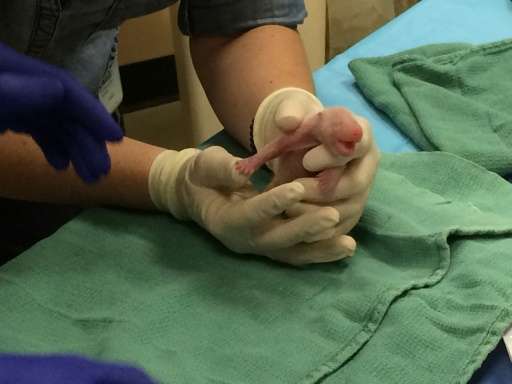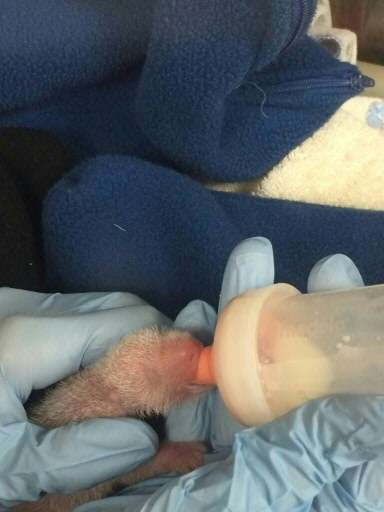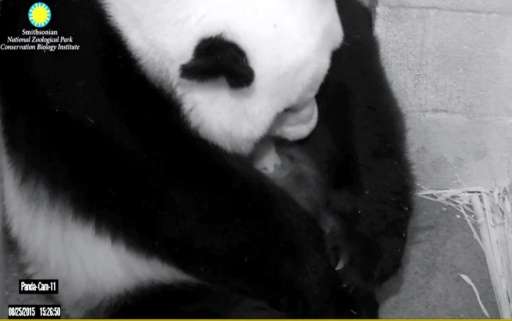This image released August 23, 2015 courtesy of the Smithsonian National Zoo shows the second of the two giant panda cubs being examined by veterinarians
The smaller of the two giant panda cubs born over the weekend at the US's Smithsonian National Zoo in Washington is on antibiotics and being bottle-fed, zookeepers said Tuesday.
The larger of the twins appears to be doing well and it is getting the vast majority of their mother's attention.
"We're confident Mei Xiang is taking very good care of it," zoo officials said in a statement.
The newborn pandas—tiny, blind and nearly hairless—are completely dependent on their mother.
In the smaller twin's case, a human "panda team" is having to play a maternal role as Mei Xiang has been unwilling to swap the larger cub to care for the smaller one since Monday afternoon.
"Because the smaller cub has been away from Mei, the panda team is now managing it more intensely," the zoo officials said, adding that the fluctuating weight of the cub has them worried about ensuring it gets enough fluids and nutrients.
The team is still trying to swap the cubs approximately every four hours so that they each get critical mom-cub time.
Pandas give birth to the smallest babies, relative to the size of the mothers, of any mammal that does not lay eggs or carry their young in a pouch.
The larger of the two cubs born Saturday evening was 138 grams at birth. The smaller was just 86 grams, or one 1,256th the weight of its 17-year-old mom.
On average, panda cubs weigh twice that—approximately one 700th of their mother's weight, as the larger cub did.
This August 24, 2015 photo provided by the Smithsonian National Zoo in Washington, DC shows a keeper feeding the smaller of the two new panda cubs
Mei Xiang was previously mother to two cubs: one that was sent to China and one that has become a crowd favorite at the Washington zoo since it was born two years ago.
She has also lost two others, however: a stillbirth in 2013 and another that died six days after birth in 2012.
This image courtesy of the Smithsonian National Zoo and Conservation Biology Institute shows giant panda Mei Xiang holding one of her two cubs, born August 22 in her enclosure at the zoo in Washington, DC
Zoo officials have previously said that in the wild, one of the twins would likely be left to die as it would be too hard on the mother's body to care for both at the same time.
Only one set of the two previous pairs of panda twins born in the United States have survived, born in 2013 in Atlanta.
© 2015 AFP

























